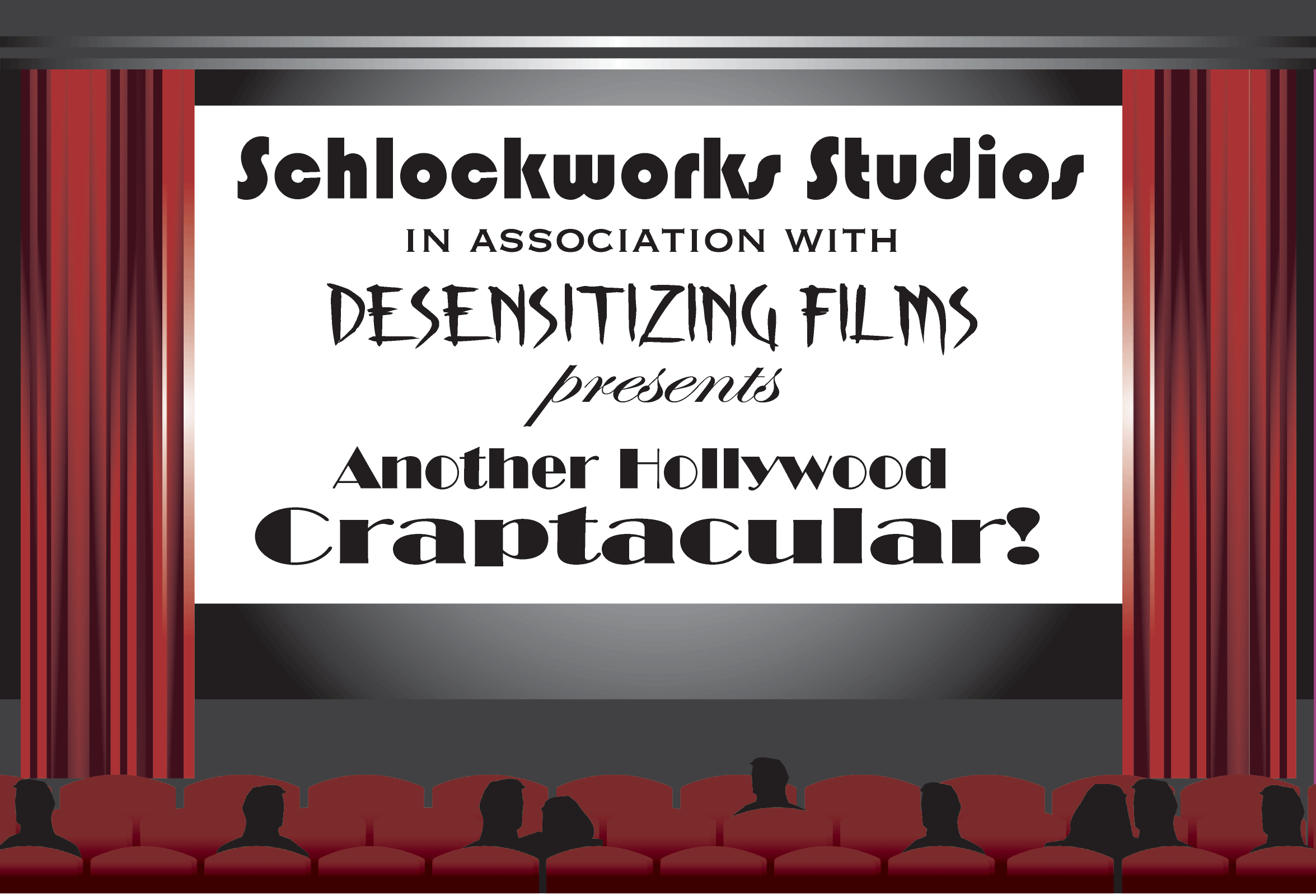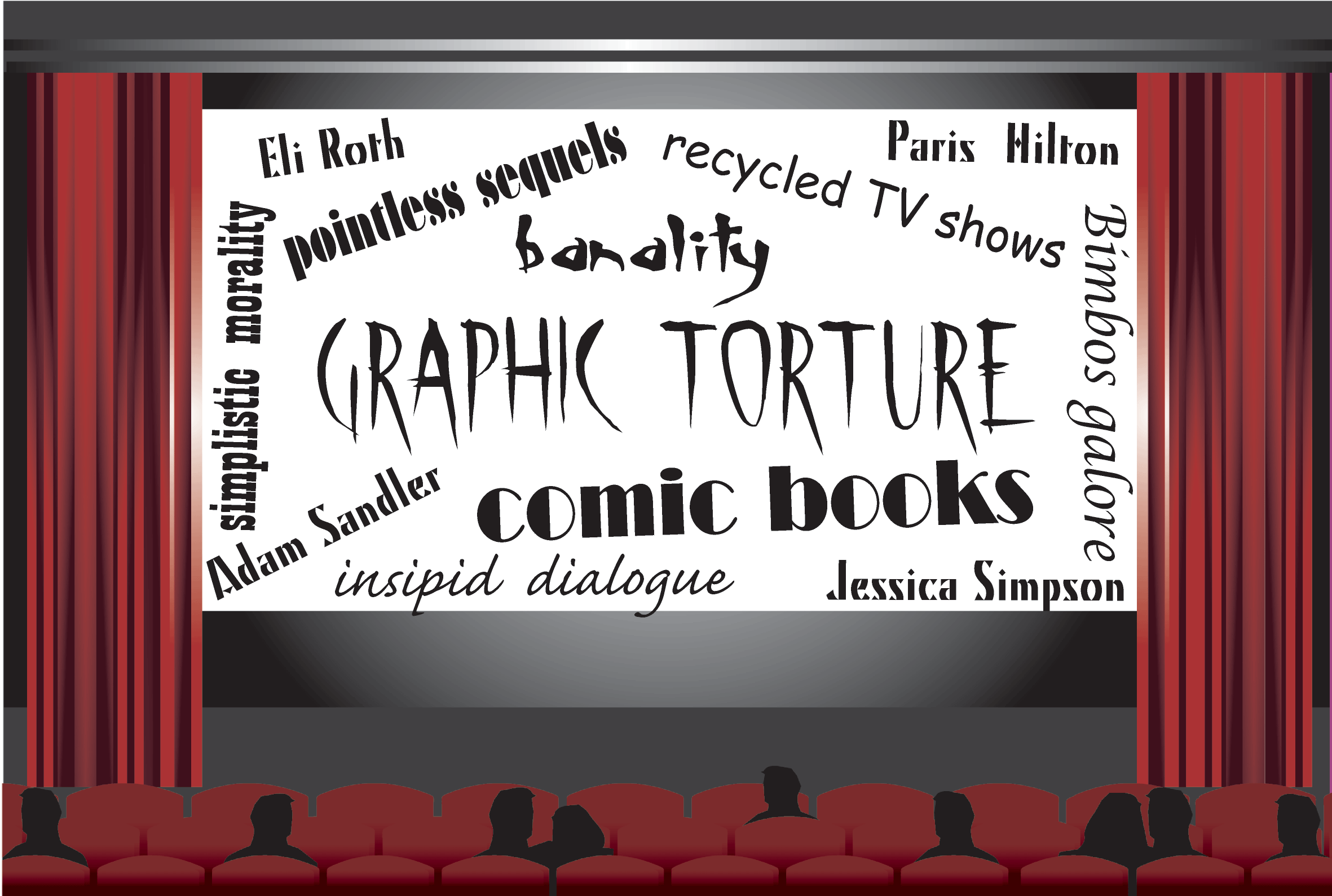February 22, 2007 Time again for “the Oscars”—Hollywood’s annual ceremony to honour the best achievements in filmmaking. Doubtless two of the most anticipated categories are Best Actor and Best Director, since the Academy of Motion Picture Arts and Sciences to its shame has never honoured Peter O’Toole or Martin Scorsese with an award. If Scorsese doesn’t win for his direction of The Departed, he should formally boycott the proceedings. Better to tell the academy to go to hell than risk receiving a “pity Oscar” like Paul Newman’s Best Actor award for the 1986 film The Color of Money—a make-good for not giving him the award for The Hustler 25 years earlier. One subject not up for discussion this night, though, is the overall corrupt state of American filmmaking. For every excellent film like The Departed or Little Miss Sunshine, there now seems to be a dozen or more insultingly stupid offerings like Deuce Bigelow—American Gigolo, Little Nicky, The Dukes of Hazzard or Jackass The Movie. The same goes for sequels to movies that had no business being made in the first place, or were transparent attempts to cash in (and thereby debase) the integrity of the original. Of course, bad movies have been around as long as movies themselves, but the motto of Metro-Goldwyn-Mayer Ars Gratia Artis (Art for Art’s Sake) has less meaning than it ever did, since motives other than artistic merit are driving the decisions of studio executives. One motive is cowardice. Because movie-making is expensive and risky, studios figure that they stand to lose less money if they make films that appeal to the lowest common denominator rather than challenge the audience. Thus we have a spate of low-brow jiggle shows, Adam Sandler-esque juvenilia, paint-by-numbers action movies, refried sitcoms from the ’60s, ’70s, and ’80s and seemingly endless scripts based on comic books that appeal to the mentality of 10-year-old boys. Is there nothing more meaningful to say? Doubtless the quality of studio moviemaking question has been debated many times before, but studios are now swallowing their own tail to pander to the first generation that grew up with television. The result is a derivative, unnecessary genre of film that might be called “nostalgia kitsch.” There is no reason to turn TV shows like Bewitched, Charlie’s Angels, Starsky and Hutch, or Miami Vice into movies, since they were products of their time, and have nothing new to offer. How many times can Superman or Batman be remade before someone asks: “What’s the bloody point!? Even though some comics manage to be well done, like the Spiderman movies Batman Begins, and Frank Miller’s Sin City, the sheer number of them and their redundancy attest to a broad lack of imagination and respect for an audience’s willingness and ability to follow a storyline not driven by stereotypes and wooden dialogue. The second motive is propaganda. Since the events of Sept. 11, 2001, at least six films have been devoted to it. The Guys (2002), All Our Sons: Fallen Heroes of 9/11 (2004), World Trade Center (2006) and Saint of 9/11 (2006) are all hagiographies of firemen or rescue workers. Fahrenhype 9/11 (2004) is a direct-to-video hatchet job of Michael Moore’s documentary Fahrenheit 9/11 made by Isramerican apologists. United 93 (2006) tells the heroic story of the passengers on the plane that “crashed” in Pennsylvania, even though no crash site has ever been found. Leaving aside the artistic merits of these films, they all reinforce official fictions and the undeserved cult of victimhood, and that makes them dishonest. The tag line for World Trade Center is particularly odious: “The World Saw Evil That Day. Two Men Saw Something Else.” “Evil” is a moral abstraction that only has meaning in a religious context, and as such must be understood in this context as a deliberate, gratuitous slur against Muslim Arabs, because we are all taught that Muslims hijacked the four aircraft that day. Conclusive, irrefutable proof has surfaced to prove that the hijacked aircraft did not cause the towers to fall, so the use of “evil” is fraudulent.
The fact that Hollywood studios would willingly endorse, however tangentially, the official anti-Muslim mythology of Sept. 11, is not hard to understand, given the industry’s Zionist prejudices. (For an excellent history see the TV documentary Hollywoodism: Jews, Movies and the American Dream (1998). How are those who make movies that reinforce a false history any better than Leni Riefenstahl, who used movies to create the myth of Adolf Hitler as the heroic leader of the German nation? The third motive is hard to discern but the effect is obvious—sadism. The proliferation of movies and their sequels that depict graphic acts of cruelty, e.g.: Saw (2004). Saw II (2005), Saw III (2006), Passion of the Christ (2004), The Devil's Rejects (2005), Hostel (2005) are serving to desensitize us to human suffering. If we internalize and accept the graphic horror in these movies we are more able to accept real cruelty inflicted on others. This is only to be expected, and it is it merely coincidence that these exercises in Grand Guignol are being made at a time when the U.S. and Israel are leading the world in inflicting calculated misery on Muslims? On Feb. 21, 2007, the U.S. Supreme Court in a split decision stripped judges of the authority to review the cases of foreign prisoners held at Guantánamo Bay. Translation: “The U.S. reserves the right to torture and otherwise abuse detainees, the vast majority of whom are Muslim, and we do not recognize the right of any judge to interfere with the executive branch’s dictatorial right to do as it pleases.” It would be more honest of a filmmaker to show life in “Gitmo” from the point of view of the victims of Israeli and U.S. torturers. At least such a film would have meaning and relevance and not just be cruelty for its own sake. The point isn’t that cruelty cannot be part of a movie, but it should be depicted with a modicum of sophistication and skill. Midnight Express (1978) told the true story of American Billy Hayes who was sent to prison in Turkey for drug trafficking and ultimately given a life sentence. The head guard at the prison was a frightful sadist played with understated power by Paul Smith, but the graphic violence occurred off screen, as in the ancient Greek tradition. It did not detract at all from the movie’s power. Director Alan Parker engaged the viewers by playing on their imagination, and subordinating the violence to the larger story of Hayes’s struggle to escape. Nowadays, schlockmeisters like Eli Roth are content to hit the audience with sensory overload and leave nothing to the imagination. The same, though, cannot be said of Scorsese, whose use of violence is realistic and honest. Movies can inspire, entertain and educate us, as the Oscar nominees demonstrate; they shouldn’t desensitize us and merely pander to our prurient nature. While you may watch the Oscar’s and acknowledge Hollywood’s successes, remember that it is floundering at the bottom of a big ars hole.
|

